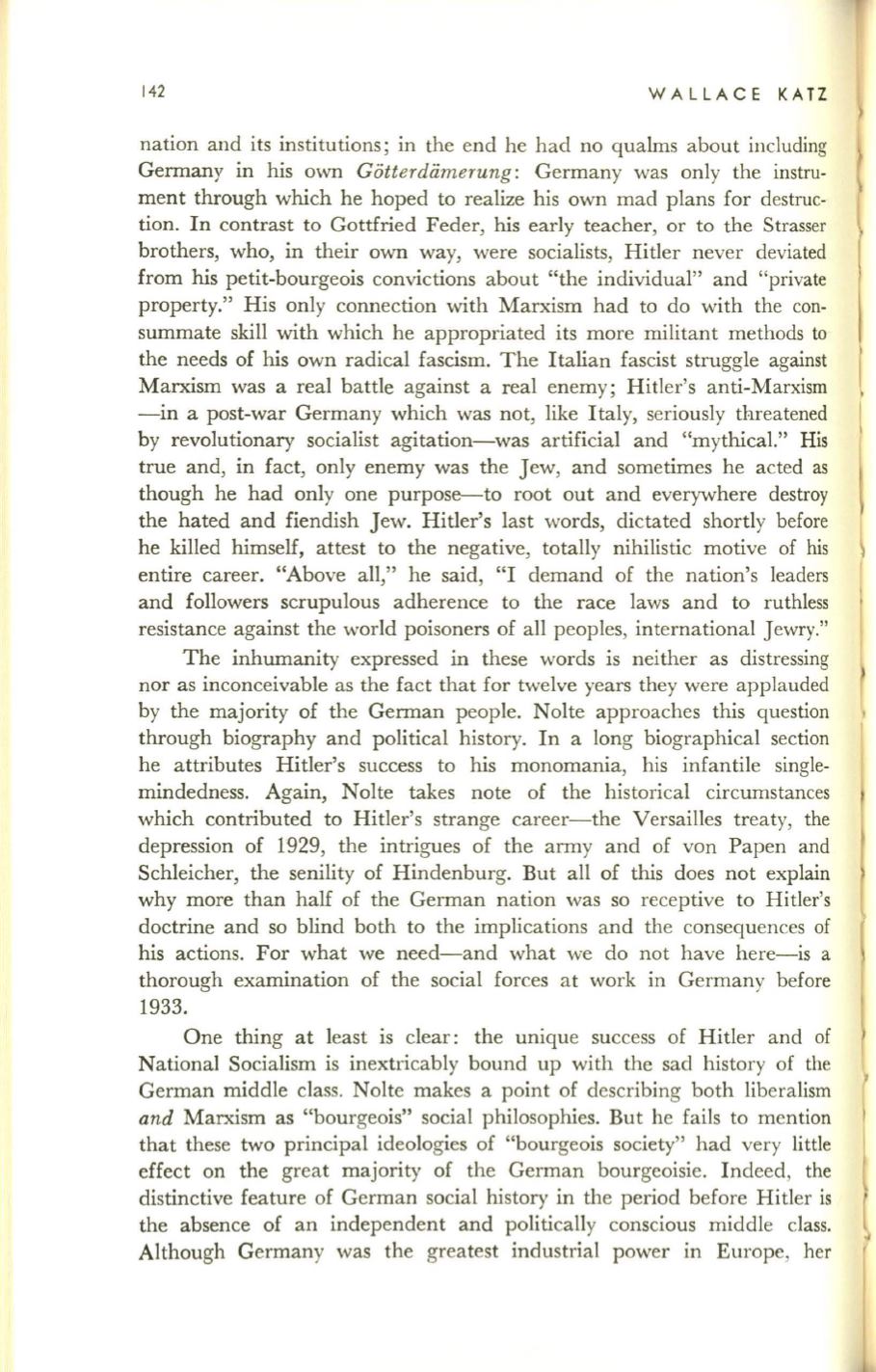
142
WALLACE KATZ
nation and its institutions; in the end he had no qualms about including
Germany in his own
Gotterdiimerung:
Germany was only the instru–
ment through which he hoped to realize his own mad plans for destruc–
tion. In contrast to Gottfried Feder, his early teacher, or to the Strasser
brothers, who, in their own way, were socialists, Hitler never deviated
from his petit-bourgeois convictions about "the individual" and "private
property." His only connection with Marxism had to do with the con–
summate skill with which he appropriated its more militant methods to
the needs of his own radical fascism. The Italian fascist struggle against
Marxism was a real battle against a real enemy; Hitler's anti-Marxism
-in a post-war Germany which was not, like Italy, seriously threatened
by revolutionary socialist agitation-was artificial and "mythical." His
true and, in fact, only enemy was the Jew, and sometimes he acted as
though he had only one purpose--to root out and everywhere destroy
the hated and fiendish Jew. Hitler's last words, dictated shortly before
he killed himself, attest to the negative, totally nihilistic motive of his
entire career. "Above all," he said, "I demand of the nation's leaders
and followers scrupulous adherence to the race laws and to ruthless
resistance against the world poisoners of all peoples, international Jewry."
The inhumanity expressed in these words is neither as distressing
nor as inconceivable as the fact that for twelve years they were applauded
by the majority of the German people. Nolte approaches this question
through biography and political history. In a long biographical section
he attributes Hitler's success to his monomania, his infantile single–
mindedness. Again, Nolte takes note of the historical circumstances
which contributed to Hitler's strange career-the Versailles treaty, the
depression of 1929, the intrigues of the army and of von Papen and
Schleicher, the senility of Hindenburg. But all of this does not explain
why more than half of the German nation was so receptive to Hitler's
doctrine and so blind both to the implications and the consequences of
his actions. For what we need-and what we do not have here-is a
thorough examination of the social forces at work in Germany before
1933.
One thing at least is clear: the unique success of Hitler and of
National Socialism is inextricably bound up with the sad history of the
German middle class. Nolte makes a point of describing both liberalism
and
Marxism as "bourgeois" social philosophies. But he fails to mention
that these two principal ideologies of "bourgeois society" had very little
effect on the great majority of the German bourgeoisie. Indeed, the
distinctive feature of German social history in the period before Hitler is
the absence of an independent and politically conscious middle class.
Although Germany was the greatest industrial power in Europe, her


